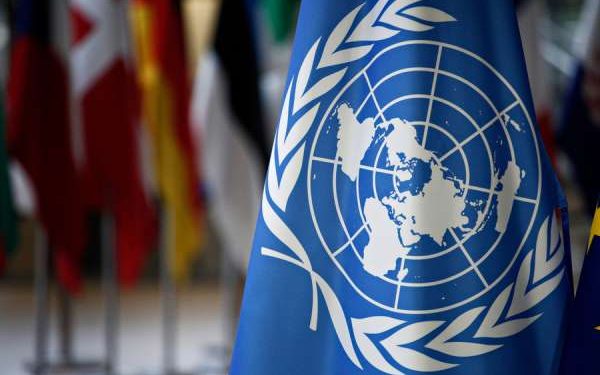CNA Staff, Oct 7, 2020 / 08:30 am (CNA).- The United States joined 38 other countries Tuesday in signing a joint statement to the United Nations condemning Chinese human rights abuses in Xinjiang and Hong Kong, and requesting the United Nations investigate the situation.
“We call on China to allow immediate, meaningful and unfettered access to Xinjiang for independent observers including the UN High Commissioner for Human Rights and her Office,” said the statement, which was delivered by Ambassador Christoph Heusgen, Permanent Representative of the German Mission to the United Nations on October 6.
The 39 nations called for the urgent implementation of U.N. Committee on the Elimination of Racial Discrimination’s eight recommendations related to Xinjiang, “including by refraining from the arbitrary detention of Uyghurs and members of other minorities.”
“In view of our concerns about the human rights situation in Xinjiang, we call on all countries to respect the principle of non-refoulement [the non repatriation of refugees fleeing abuse]. We also call on China to uphold autonomy, rights and freedoms in Hong Kong, and to respect the independence of the Hong Kong judiciary,” Heusgen added.
An estimated 1 million or more Uyghurs, members of a Muslim ethnoreligious minority group, have been detained in “re-education camps” in Xinjiang, which were first spotted on satellite imagery in 2017.
The Chinese government at one time denied the camps existed, but has since shifted to defending its actions as an appropriate terrorism prevention measure.
Those inside the camps are reportedly subjected to forced labor, torture, and political indoctrination. Women who have been imprisoned in the camps have told stories of forced abortions and sterilizations.
Outside the camps, Uyghurs are monitored by pervasive police forces and facial recognition technology.
In Hong Kong, the mainland government has imposed a sweeping new National Security Law, which criminalizes previously protected civil liberties under the headings of “sedition” and “foreign collusion.”
Since the law came into effect on 1 July, several prominent pro-democracy activists and journalists – many of them Catholics – have been arrested.
Heusgen said that the signatories were “gravely concerned” about both Xinjiang and the “recent developments in Hong Kong.”
“We have deep concerns about elements of the National Security Law that allow for certain cases to be transferred for prosecution to the Chinese mainland,” said Heusgen.
“We urge the relevant authorities to guarantee the rights which are protected under the ICCPR [International Covenant on Civil and Political Rights] and the Sino-British Joint Declaration, including freedoms of speech, the press and assembly.”
The 39 co-signing countries were Albania, Australia, Austria, Belgium, Bosnia and Herzegovina, Bulgaria, Canada, Croatia, Denmark, Estonia, Finland, France, Germany Haiti, Honduras, Iceland, Ireland, Italy, Japan, Latvia, Liechtenstein, Lithuania, Luxembourg, the Republic of the Marshall Islands, Monaco, Nauru, the Netherlands, New Zealand, North Macedonia, Norway, Palau, Poland, Slovakia, Slovenia, Spain, Sweden, Switzerland, the United Kingdom, and United States.
In response to the intervention, 45 countries, led by Cuba, defended China’s conduct in both Xinjiang and Hong Kong at the U.N.
“We commend that the Chinese government pursues a people-centered philosophy in advancing economic and social sustainable development, eradicating poverty, and increasing employment, improving people’s living standards, and promoting and protecting human rights,” said the representative from Cuba on October 6.
“We note with appreciation that China has undertaken a series of measures to respond to threats of terrorism and extremism, in accordance with the law, to safeguard the human rights of all ethnic groups in Xinjiang,” the representative added.
“People of all ethnic groups enjoy a happy life in a peaceful and stable environment,” she said.




